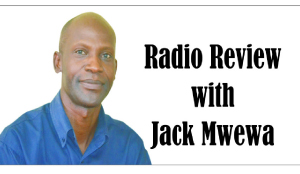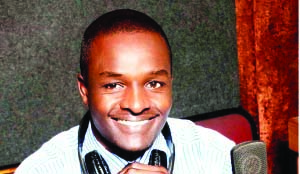 THE political hullaballoo currently going on has overshadowed Christmas euphoria that fill up every space on radio during this period.
THE political hullaballoo currently going on has overshadowed Christmas euphoria that fill up every space on radio during this period.
Listeners have heard more political slogans than Christmas carols and political campaign messages than explanations on what and how to celebrate Christmas.
We heard more Christmas carols, detailed definitions of the festive season, explaining its origins, debates for or against it in the previous years than this year.
Much as those political messages running on radio are paid for, radio stations could have done better by balancing time with informative messages about Christmas, especially to the benefit of the young ones.
ZNBC
It is SEASON greetings when said before the actual celebrations and COMPLIMENTS of the season when said after the celebrations, yet we have heard presenters on the Zambia National Broadcasting Corporation (ZNBC) radio say it anyhow.
***
Assistant Labour Commissioner Chinyanta Chikula from the Ministry of Labour appeared on Labour and Employment Matters ZNBC’s Radio 2 programme last week; both Chinyanta and interviewer Raphael Kumwenda were outstanding.
The progamme turned out to be interesting, simply because both the interviewer (Raphael) and interviewee (Chinyanta) were well versed with the topic at hand.
DBM
DBM is a retired and an accomplished broadcaster listeners knew as Doris Bwalya Mulenga on air.
Those who heard her on radio would have absolutely nothing to take away from her; she had and still retains an incredible voice for broadcasting, an exceptional command of English in both intonation and
pronunciation.
She read the news with stern accuracy, she anchored as continuity presenter with ease and played music without interruption.
DBM has noticed the plummeted levels of broadcasting on most radio stations in Zambia, her tip on interviewers is that they lack the knack for progressive interviewing.
One observation she made is that when an interviewee repeats his/her answer with, “LIKE I HAVE ALREADY SAID, OR AS I HAVE ALREADY ALLUDED TO,” it may mean that the interviewer is either, not attentive or simply sticking to pre-written questions.
An interview is a conversation which should be as progressive as any other dialogue, therefore, lingering around the same points can be boring.
She further referred to what is correct spoken English which must be said on radio as opposed to acceptable, but wrong English.
Example could be the phrase; “See you after the break, instead of “I will be back or will be with you after the break.”
Truth is that as a radio presenter, one is not seeing listeners, but could be with them as he/she communicates to them through the airwaves.
She said; “Jack, it’s good to read that you are back, so, you mean you and this column went on leave? Anyway, it’s sad that levels of radio broadcasting have plummeted … “
BBC
Meluse Kapatamoyo, a British Broadcasting Corporation (BBC) correspondent in Zambia was on BBC’s Focus on Africa last Saturday night reporting on the political situation and later was interviewed to give more insight.
Meluse acquitted herself well with an up-to-date narration of what the political situation was obtaining on the ground in Zambia.
She proved that apart from simply reading written reports on air, broadcasters ought to be coherent enough such that they are able to explain issues offhand with ease.
Listeners will tell how knowledgable or dull a presenter is when he/she loosely gives second-to-second narration of topical unscripted issues.
You will appreciate sharp broadcasters at such events like live broadcast from the Freedom Statue during independence and Freedom Day commemorations, on arrivals of dignitaries either at the airport or at a function.
MILLENNIUM RADIO
Reading the 08:00 hours news, a lady caster on Millennium Radio, broadcasting on 90.5 FM in Lusaka referred to the new Zambia Congress of Trade Unions’ president Nkole Chishimba as ‘President-Elect.’
Maybe, she could have been faithfully following the script and meant that NEWLY ELECTED PRESIDENT. ‘PRESIDENT-ELECT’ however, means something else.
A president-elect is one who has been elected, but awaits inauguration or induction before taking office, Mr Chishimba was elected and assumed presidency thereafter, he, then is simply newly-elected
president.
RCV
Radio Christian Voice (RCV) is living up to its motto “All about real life,” Real life in the sense that the radio station has arisen to the need to pray for mother Zambia in these transition period.
Tune-in every midnight to live intercessory prayers from midnight to 02:00 hours on radio.
Dear Jack,
“Thanks for coming back with this column.
However, there are some common errors made by radio DJs and announcers that irritate us, such as:-
1. “EVERY TUESDAYS AND THURSDAYS” instead of “Every Tuesday and Thursday” on Radio Phoenix advertisement for the Let the people say programme!
The word EVERY is never a plural, it is always Singular,so it is either “ALL Tuesdays and Thursdays” or EVERY Tuesday and Thursday.”
2. Another common error is when an advert is informing the listeners the location of the advertiser!
A building in always static, so cannot be referred to as being ALONG Kafue Road, for example!!
A building is “LOCATED AT 145 Kafue Road” or “BESIDE Kafue Road at Plot 145!”
Along means it is mobile!!
These are common errors which have sadly been allowed to creep in to advertisements by even Radio Phoenix known for its high grammar standards. Is this a sign of the lowering of standards? Is there
anyone who proof reads/checks material before it is broadcast?
Thank you
John Z. Ziba
Lusaka.
Stay tuned, don’t touch that dial! – jackmwewa@gmail.com 0955115777








